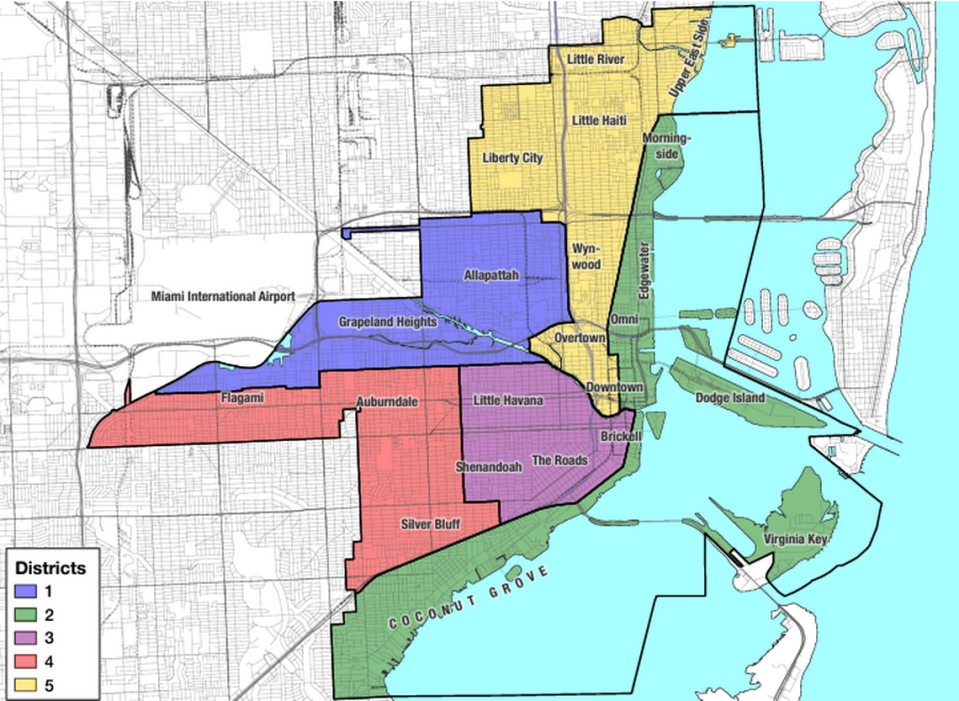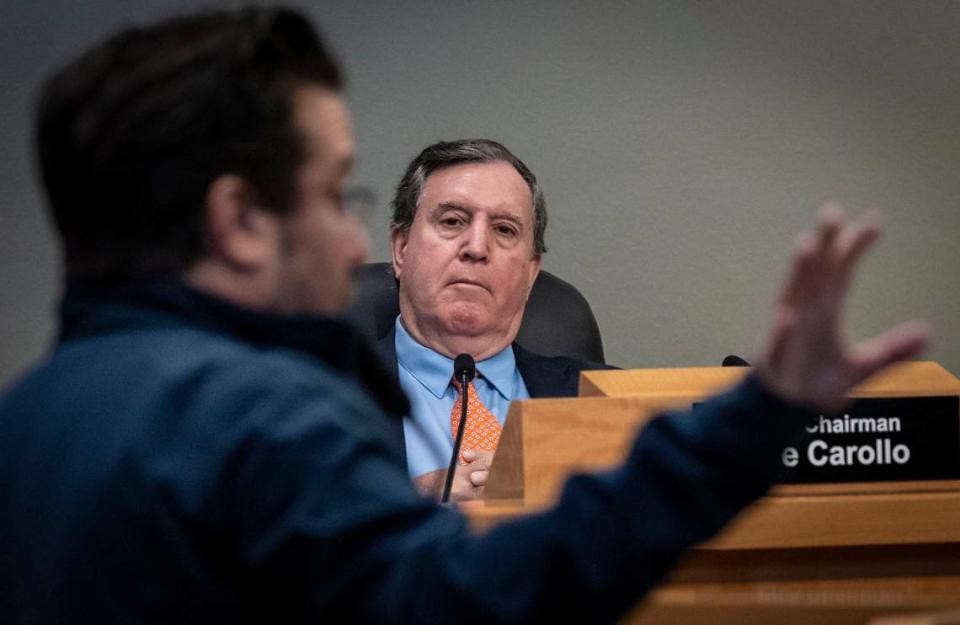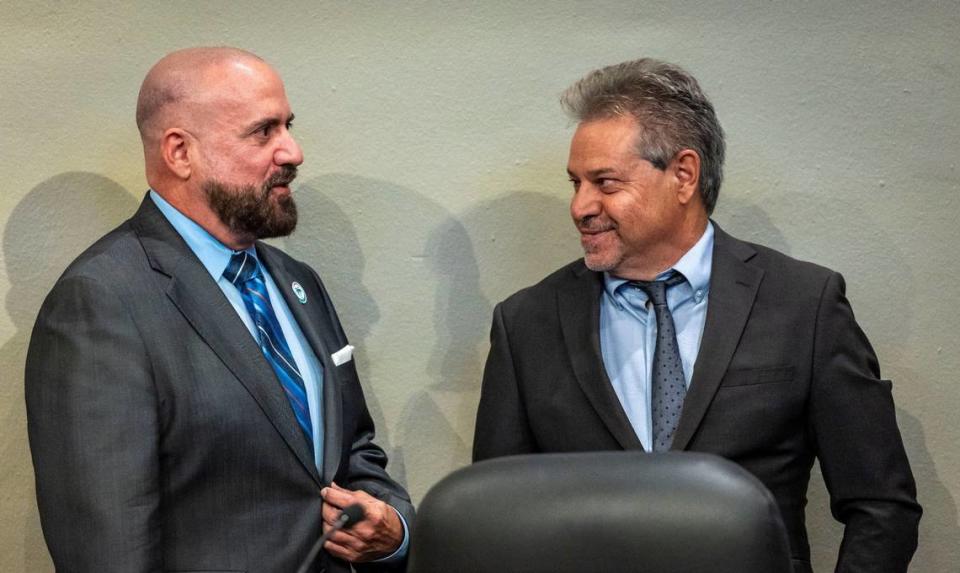After judge’s gerrymandering finding, Miami (finally) agrees on new voting map
The city of Miami has approved a new voting map and agreed to pay out nearly $1.6 million in attorneys’ fees after a federal judge ruled last month that the city gerrymandered its district boundaries to ensure that three Hispanic commissioners, one Black commissioner and one white commissioner would be elected to the five-member commission.
Thursday was the second time this month that the City Commission considered the new map as part of a settlement agreement with the American Civil Liberties Union, which represented voting rights activists who sued the city in 2022. The contentious legal battle led to a federal civil trial earlier this year.

The commission voted to approve the settlement 4-1 Thursday, with Commissioner Joe Carollo voting no. Carollo, who disagreed with the judge’s gerrymandering finding, presented demographic data comparing the 2023 voting map the city approved ahead of the November election to the newly proposed map. Carollo’s numbers showed only minor differences in the makeup of Hispanic residents in the three majority-Hispanic districts, which tracks with a Miami Herald analysis of the new map.
The settlement also stipulates that the city will pay $1.58 million in attorneys’ fees to the plaintiffs.
“I cannot vote for an amount to be given for something that we did not do,” Carollo said. “We did not commit racial gerrymandering.”

The commissioners kept the discussion brief before voting Thursday, though a short argument broke out between Carollo and Commissioner Miguel Gabela, who interrupted Carollo about three minutes into his presentation and urged Chairwoman Christine King to “call the question.”
“Enough of the dog-and-pony show. ... We’re wasting time,” Gabela said. He noted that the commissioners had already discussed the settlement in a closed-door shade meeting earlier that afternoon.
The ACLU of Florida celebrated the commission’s vote Thursday.
“Our clients fought for district lines that were fair to the communities that make up our multi-racial, multi-ethnic, and multi-cultural city,” Bacardi Jackson, the organization’s executive director, said in a statement. “The power to ensure a stronger and fairer democracy will be back in the hands of Miami voters– not politicians.”
The map will go into effect seven days after a judge’s approval, according to the resolution.
The next Miami election is slated for 2025.
The settlement also requires the city to include a ballot question in the November 2025 election to establish a citizens’ redistricting committee to draft maps and propose them to the commission in future redistricting processes. The proposed charter change would also “ban gerrymandering that favors particular candidates and incumbents,” according to the ACLU of Florida.


